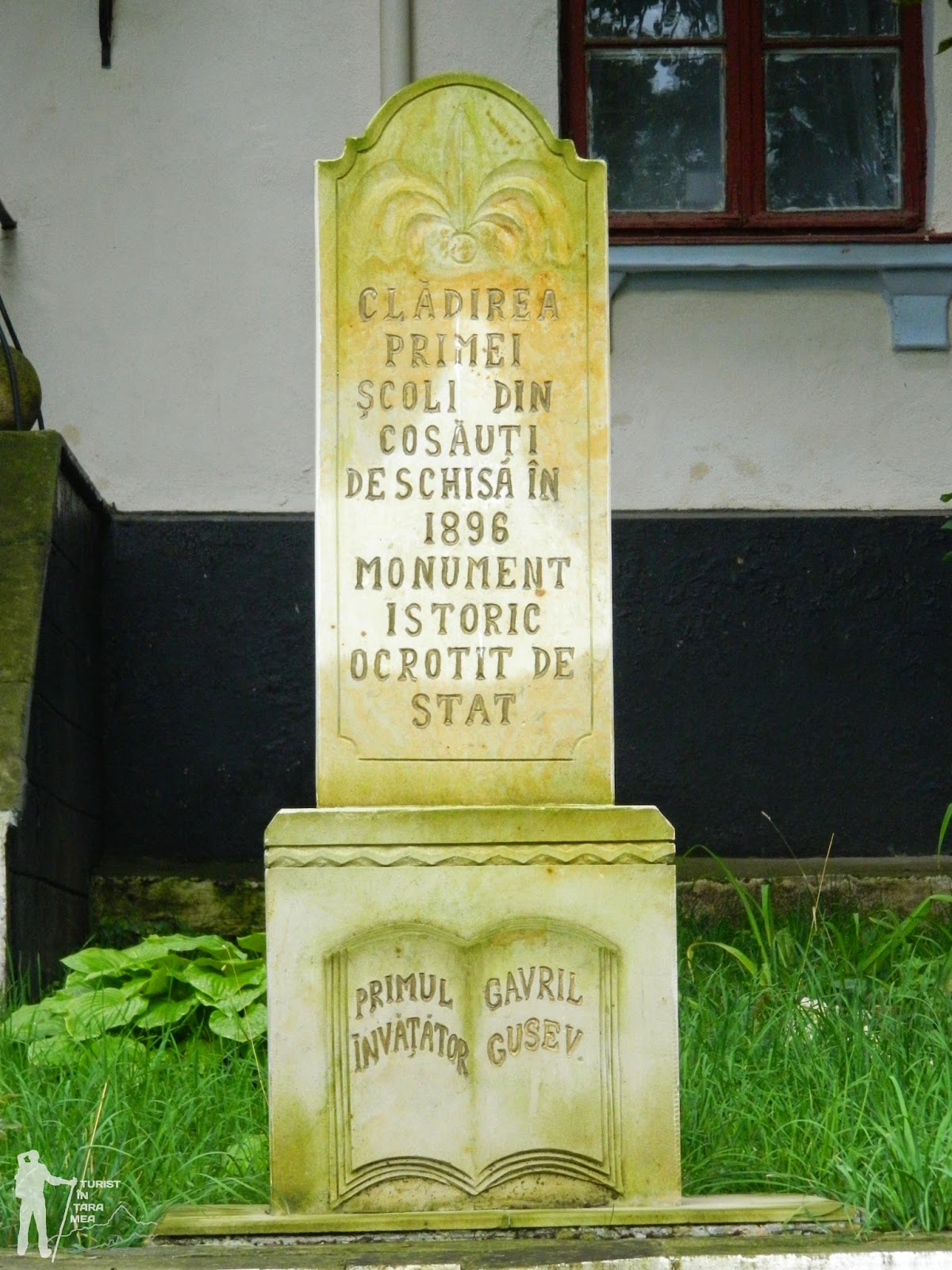Unul dintre cele mai frumoase sate de pe Nistru este Cosăuți, un sat ce "a avut un noroc Dumnezeiesc de sălășuire între piatră, codru și Nistru", după cum este prezentat în pliantul ce se găsește la frumosul Muzeu de istorie și etnografie.
În Cosăuți am fost cu ocazia Caravanei "Trai mai bun" nr. 5 spre Soroca.
One of the most beautiful villages on the Dniestr river is Cosăuți, a village that "has received God's gift to be placed between rock, river and forest."
I visited Cosăuți during the "Better living" Cravan nr. 5 towards Soroca.
Muzeul este deschis în clădirea primei școli din Cosăuți, o frumoasă căsuță cu mai multe sculpturi în curte. De fapt întreg satul e un muzeu în aer liber, cu multe monumente de piatră.
The museum was opened in the building of the first village school, a beautiful little house woth several sculptures in its yard. In fact the village boasts many stone sculptured, making it an open-air museum.
"Cea mai veche carte a planetei este piatra. La Cosăuți ea ne vorbește despre trecutul îndepărtat. Această filă a celei mai vechi cărți păstrează amprenta copilăriei planetei Pământ" (pliant de prezentare al Muzeului)
"The planet's oldest book is the stone. At Cosăuți is tells the story of the distant past. This page of the oldest book holds the memory of Earth's childhood."
Primul învățător al școlii, Gavril Gusev, a avut un merit deosebit în deschiderea și funcționarea școlii.
The school's first teacher, Gavril Gusev, had a lot of merit in the opening and functioning of the school.
La intrarea în muzeu este inscripționat acest frunos îndemn al poetului Mihai Eminescu.
"Without the reverence for the past, there can be no love for the homeland". Mihai Eminescu
Muzeul este foarte bogat în exponate: obiecte gospodărești, de port popular, planșe ce înfățișează istoria locală. Ștefan cel Mare este desigur la loc de cinste.
The museum has many exhibits: household items, folk costumes, boards showing elements of local history. Stephen the Great is of course a central character.
Mi s-a părut deosebit de interesantă această hartă a Moldovei, ce subliniază toate pierderile teritorial succesive: Bugeac, Hotin, Bucovina, la final toată Basarabia.
I found this map of Moldova very interesting, showing the successive territorial losses: the Budjak (south), Khotyn (north), Bukovina (north-west) and all of Bessarabia in the end.
Zid al onoarei cu veteranii din partea locului.
Local war veterans.
Cu această mitralieră s-a apărat pământul patriei. Este fabricată la Cugir și a fost găsită în Prut.
This machine gun served to defend the homeland. It was built in the Cugir arms factory and found in the Prut river.
Muzeul are în total 7000 de exponate. Camerele merită parcurse cu luare aminte, sunt multe de văzut.
The museum holds about 7000 exhibits. It is worth taking a good hour to see all the rooms with all the different interesting objects.
"M-am născut frate cu piatra, c-am crescut cu piatra-n vatră", spunea poetul local Anatol Codru. Așa sunt cosăuțenii, mândri de satul și de moștenirea lor.
"The rock is my brother, because I grew up with it", say the verses of the local poet Anatol Codru. This is the way of the locals are, proud of their village and of their inheritance.









